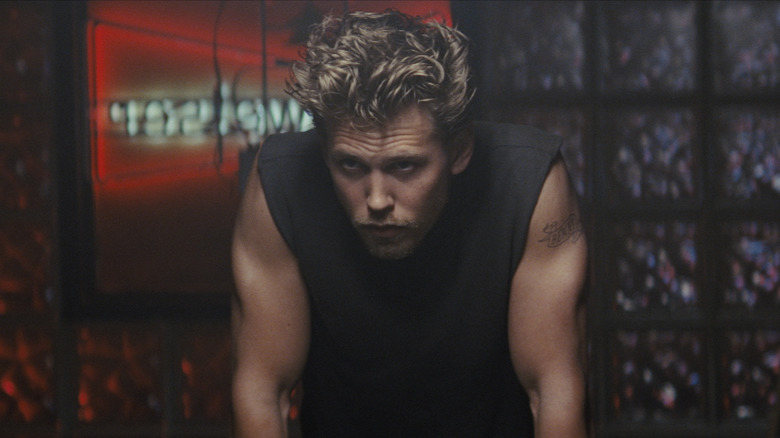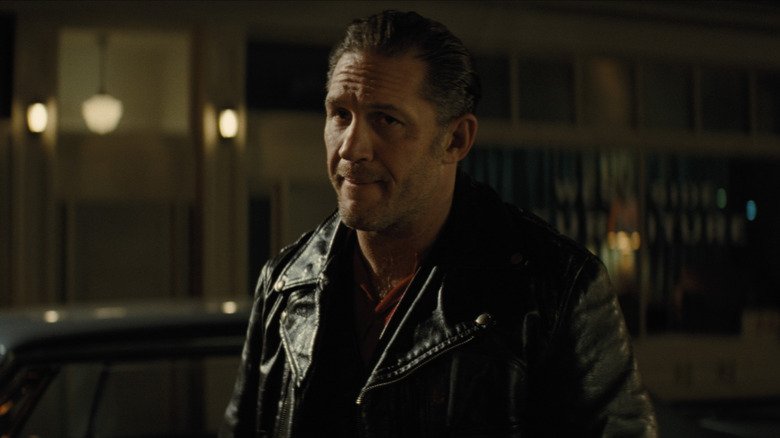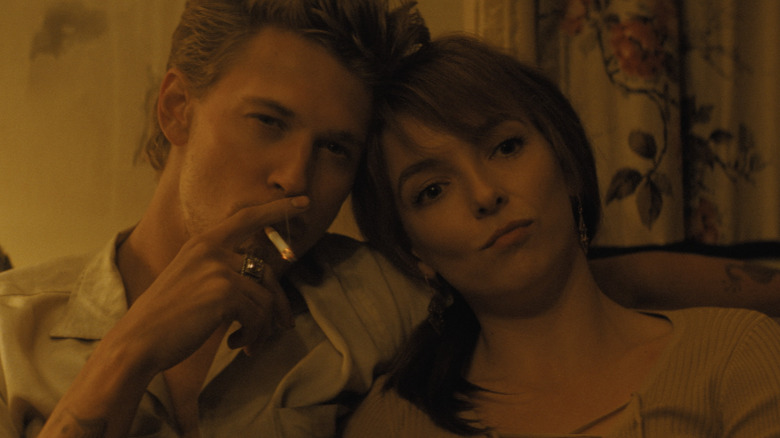The Bikeriders Review: Jeff Nichols Helms A Beautiful Austin Butler Drama [Austin Film Festival]
When we think about the cultural upheaval of the United States in the 1960s as depicted on screen, the focus tends to be on one of three places: Los Angeles, New York, and the American South. These places were where change regarding politics, race relations, societal mores, and art were most visible. But change was happening all over the country. It just was manifesting itself in different ways, even amongst groups of people you wouldn't expect to be going through any kind of evolution.
Jeff Nichols' last film, 2016's "Loving," tackled one of the most consequential events during this time period, chronicling the couple at the center of the Supreme Court case that made anti-miscegenation laws illegal. While that sounds like it could head straight into a pool of sentimentality and pandering inspirational drama, Nichols makes that film a true character piece about two people who just really love each other and would rather be left alone than become figureheads for a political movement. He finds the personal in what very easily could turn into pure convention.
"The Bikeriders" returns Nichols to the 1960s but eschews the major political spotlight, opting instead to dramatize that societal shift within a close-knit group of people. That group of people is a motorcycle club in Chicago called the Vandals. Led by Tom Hardy's Johnny, they are simply a group of guys who go around and ride their bikes, drink beer, and have a good time. Amongst the crew is Benny (Austin Butler), who is about as true to the cause as you can be. He has no interest in money or a job. He just wants to ride, which can cause quite a bit of friction with his wife Kathy (Jodie Comer) who knows that the bike will probably kill him. The question is whether that death will come while riding the bike or because of his commitment to the club, which has plenty of rivals in the Midwest.
The complicated nature of male camaraderie
You will notice that I referred to the Vandals as a motorcycle club and not a motorcycle gang, which is a pretty crucial distinction and is at the heart of how we see that cultural shift. When Johnny decided to start the Vandals, he wasn't looking to get into a life of crime. He saw Marlon Brando in "The Wild One" and wanted to emulate the cool he watched on screen, but what he was really looking for was an escape from his fairly mundane life as a truck driver with a wife and kids. He can have his home life and his club life. Finding an excuse to pal around with guys like Damon Herriman's Brucie, Emory Cohen's Cockroach, and Michael Shannon's Zipco was what made the club so appealing, but everyone has to essentially cosplay as a macho tough guy to disguise their true affections for each other, as that's how you have to be a man in this world.
Those affections are even more complicated between Johnny and Benny. Benny sees Johnny as something of a father figure, which someone as adrift as he is desperately desires, but though never made explicit, it's pretty clear that Johnny harbors a secret love for Benny, though he has no way of expressing it. There's always a reason to take Benny aside for a private conversation, some of which are so quiet and have their faces so close together that you expect a kiss at any moment. Adam Stone's naturalistic but warm 35mm photography beautifully captures that desire (as does how he shoots Austin Butler, who further cements himself as a true movie star). When Johnny is in a particularly precarious place towards the end of the film, he visits Benny and Kathy's house, but when Benny isn't there, he can't confess what he really needs. This club exists for men to be close to each other. They call it loyalty, but it's really love.
When you put on the airs of toughness and hard living, how long does it take for you to buy into your own created narrative? "The Bikeriders" may start out as a story about a motorcycle club, but the film follows how that club morphs into a gang. Just as the 1960s become more violent, chaotic, drug-fueled, and unknowable, so do the Vandals. Rather than be a way to circumnavigate societal expectations, it becomes an outlet for rage, and some members understand that they've lost the plot while some don't. The original conception of a bike club becomes something that men lose, and the loss of that camaraderie ripples through time to today.
A framing device that doesn't quite work
The top-billed actor of "The Bikeriders" isn't Austin Butler or Tom Hardy, though. It's Jodie Comer, and the vast majority of the film is told by her. "The Bikeriders" is inspired by the book of the same name by Danny Lyon, primarily consisting of photographs of the author's time with a Chicago motorcycle club. Nichols has couched the narrative of this club in the superstructure of Lyon himself, played by Mike Faist, conducting two different interviews with Comer's Kathy. The first is in 1965, when she is firmly in the world, and the second in 1973, several years removed from it.
I understand the desire to center a female voice in a male-dominated picture. Had Benny or Johnny been the primary character, Kathy would so easily become an appendage to the story, and considering she grows to not be too fond of the club, she would inevitably be seen as the nag, which would be a completely unfair read of who this woman is. It would also be a waste of Comer's talents, who is immensely charming, funny, and heartfelt here. The problem with this framing device is that it ends up telling us way more than it needs to. Jeff Nichols is a dynamite visual storyteller, and his ability to find the beauty and poignancy in the mundane and murky is considerable in movies like "Mud" and "Take Shelter." Telling the story this way may make it a more accessible or commercial film for some — which I'm sure 20th Century Studios cares about a great deal — but it also makes for a film that should feel entirely specific far more conventional. You want to immerse yourself in the world, but every time we cut back to Faist holding up a microphone, you are ripped from that immersion for the sake of exposition.
"The Bikeriders" may not be the most elegantly told story, but there's so much power and pathos to be found here. Bolstered by a cavalcade of character actors, the trio of Comer, Butler, and Hardy make for a compelling triangle by which to experience this subculture that rarely gets its due on screen, particularly in such an empathetic light. My misgivings about its conventional narrative structure are only heightened by the fact that I think this would be a highly accessible film still without it. This is a movie about people looking for a place in the world and people with whom they want to share that place. In the end, that's what we're all looking for.
/Film Rating: 7.5 out of 10


